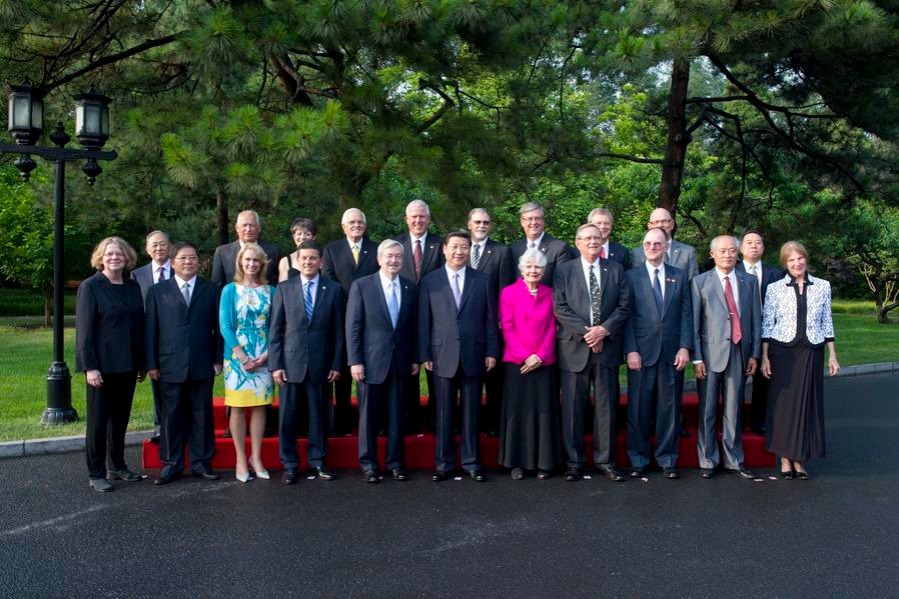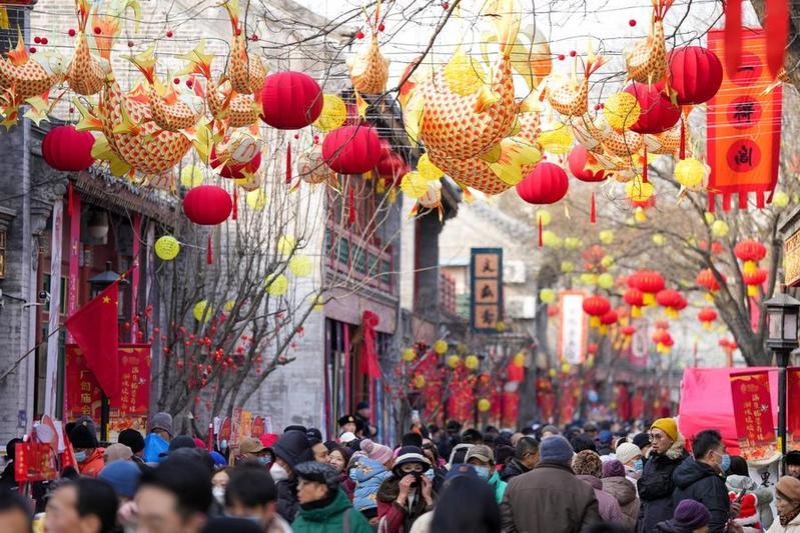Access must be safe and secure

Expanding the connectivity between domestic and overseas financial markets is essential for advancing China's high-level financial opening-up

In January, while addressing a session on promoting the high-quality growth of the financial sector that was attended by provincial- and ministerial-level officials, Chinese President Xi Jinping highlighted the need to enhance the connectivity between domestic and overseas financial markets, and make it easier for cross-border investment and financing. This holds strong significance for guiding efforts in promoting the high-level opening-up of the financial sector and ensuring a sound performance in work related to the sector in the new era.
China has made continuous efforts in opening up its financial sector since its accession to the World Trade Organization. From the pilot program for cross-border trade settlement in the renminbi to the expanded access for foreign banks and securities companies, and to connectivity initiatives and product innovation in the capital markets, China has never paused its steps toward financial opening-up. Since the beginning of the new era, China has orderly expanded its high-level financial opening-up, vigorously attracted international capital, steadily advanced the internationalization of the renminbi, and made significant progress in deepening financial reforms and opening-up.
As the nation keeps widening its opening-up, the attractiveness of its market continuously grows, drawing more international financial institutions to establish their presence in the Chinese market.
Regarding foreign investors investing in its capital market, China officially launched the Qualified Foreign Institutional Investor, or QFII, system in 2002. As of January 2024, China has approved 808 qualified foreign investment institutions. In September 2019, China announced the canceling of investment quota restrictions for QFII.
For domestic investors investing in overseas capital markets, China officially launched the Qualified Domestic Institutional Investor, or QDII, scheme in 2006. As of February 2024, China had approved 186 qualified domestic investment institutions, including 39 banks, 75 securities funds, 48 insurance companies, and 24 trusts, with the cumulative quota for approved overseas investment reaching $165.5 billion.
Data from China's International Investment Position shows that China's overseas securities investment assets have reached $1.08 trillion, including $609.9 billion in equity assets and $466 billion in bond assets by the end of September 2023, excluding foreign exchange reserve investments. During the same period, China's overseas securities investment liabilities reached $1.67 trillion, including $1.07 trillion in equity assets and $600 billion in bond assets.
According to data from CEIC, an international financial information provider, as of December 2023, the scale of domestic stocks and bonds held by foreign institutions and individuals reached 2.79 trillion yuan ($387.6 billion) and 3.72 trillion yuan respectively, with the scale of loans and savings held by foreign institutions and individuals reaching 1.15 trillion yuan and 1.71 trillion yuan respectively.
Since the Chinese government began to promote the internationalization of the renminbi in 2009, the nation has secured significant progress in various dimensions in making the renminbi an international currency. In terms of international settlements, the renminbi climbed from a ranking of 35th in October 2010 to fourth in November 2023, reaching a historical high of 4.61 percent in market share in November 2023. By 2022, more than 80 central banks or monetary authorities worldwide had included the renminbi in their foreign exchange reserves. The renminbi's share in global currency composition of official foreign exchange reserves, or COFER, reached a peak of 2.87 percent in the first quarter of 2022. Furthermore, in 2016, the renminbi was included in the International Monetary Fund's Special Drawing Rights currency basket with a weight of 10.92 percent, marking a milestone achievement since the launch of its internationalization. In May 2022, the IMF adjusted the renminbi's weight in the SDR to 12.28 percent, indicating a further enhancement of the renminbi's international status.
Practice has proven that the interactions of domestic and foreign financial resources and the interconnectivity of domestic and overseas financial markets have injected strong momentum into China's high-quality financial development, which has also helped enhance China's international influence and competitiveness.
The high-level opening-up of the financial sector is an inherent requirement for achieving high-quality development. Whether it is to improve the global competitiveness of China's financial sector or to better meet the needs of the real economy and people's lives, it is necessary to open up the financial sector even wider. To build China into a nation with a strong financial sector and steadfastly follow the path of financial development with Chinese characteristics, the country must continuously deepen its institutional opening-up, expand the interconnectivity between domestic and overseas financial markets, and make it easier for cross-border investment and financing.
The Hong Kong Special Administrative Region, as an international financial center, plays an important role in strengthening the interconnectivity between domestic and overseas financial markets. With a high degree of internationalization, the SAR serves as a crucial bridge and window connecting the Chinese mainland with the rest of the world. Since 2014, the central government has supported the interconnectivity in financial markets between the mainland and the SAR, successively launching programs such as Shanghai-Hong Kong Stock Connect, Shenzhen-Hong Kong Stock Connect and the Bond Connect program. Such practices have achieved fruitful results and vividly illustrated the expansion of high-level financial opening. Going forward, the country should continue to leverage Hong Kong's strengths in international connections and professional services. Such strengths, combined with the vast market, complete industrial system, and strong technological capabilities of the Chinese mainland, will help enhance the city's status as an international financial, shipping, and trade center, and contribute to efforts in making the SAR a significant bridgehead for the country's two-way opening. It will also provide strong support for expanding the interconnectivity between domestic and overseas financial markets.
The opening-up of the financial sector is not simply about widening access. The nation must firmly guard the bottom line of its financial and economic security. With the global economic recovery lacking momentum and the external environment displaying increasing complexity, severity and uncertainty, China must ensure its financial and economic security while opening up the financial sector. It is important to adhere to the principle of pursuing progress while ensuring stability, promoting stability through progress, and breaking new ground after establishing a foundation. The nation must take initiatives on the basis of safeguarding the foundation and stabilizing its footing. Only by upholding the principle of safeguarding national financial interests and ensuring national financial security in the process of expanding the interconnectivity between domestic and overseas financial markets can the nation promote its high-level financial opening-up in a steady and orderly manner.
On the new journey, the nation should prioritize institutional opening-up in the financial sector, continuously strengthen the interconnectivity between domestic and overseas financial markets, improve the efficiency and capability for the allocation of China's financial resources, and better coordinate development and security. In doing so, the nation, through greater strides in opening up, will surely win the initiative in economic growth and keep securing new progress in building a nation with a strong financial sector.
The author is deputy director of the Institute of Finance and Banking at the Chinese Academy of Social Sciences and deputy director of the National Institution for Finance and Development. The author contributed this article to China Watch, a think tank powered by China Daily.
The views do not necessarily reflect those of China Daily.
Contact the editor at editor@chinawatch.cn.


































